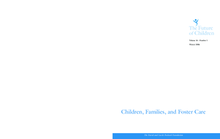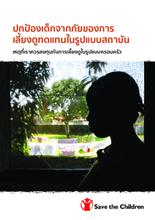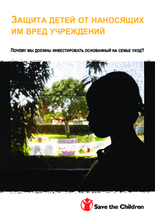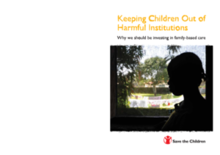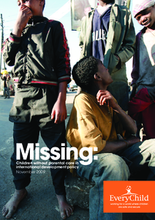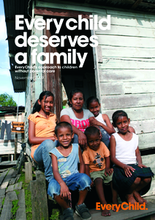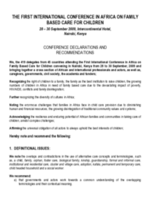Displaying 661 - 670 of 772
As a result of the HIV/AIDS pandemic, there are now more than 12 million orphans in sub-Saharan Africa. The majority of these children have been absorbed into their extended families.
Provides global estimates of the number of highly vulnerable children; a summary of United States Government (USG) assistance programs for highly vulnerable children; a summary of progress coordinating the response among USG agencies; key strategic issues and opportunities; priorities for 2009–2010 and beyond; and a summary of the results and achievements of USG assistance
This report from Save the Children outlines recommendations to governments and donors in order to ensure that positive childcare and protection practices are pursued at every level.
This report from Save the Children outlines recommendations to governments and donors in order to ensure that positive childcare and protection practices are pursued at every level.
Examines the latest evidence of the harm institutional care can cause to children. It explores why governments and donors continue to prioritize institutional care, despite the harm it can cause.
Explores the negative impacts of loss of parental care on children. Advocates for reform for children based on assertion that failure to keep children in families, out of residential institutions and off the streets, will be another barrier to the achievement of the Millennium Development Goals
This document outlines EveryChild’s approach to the growing problem of children without parental care by defining key concepts, analysing the nature and extent of the problem, exploring factors which place children at risk of losing parental care, and examining the impact of a loss of parental care on children’s rights.
Programme of presentations and activities
Collection of abstracts from conference presentations
Summary of conference delegates' declarations and recommendations

